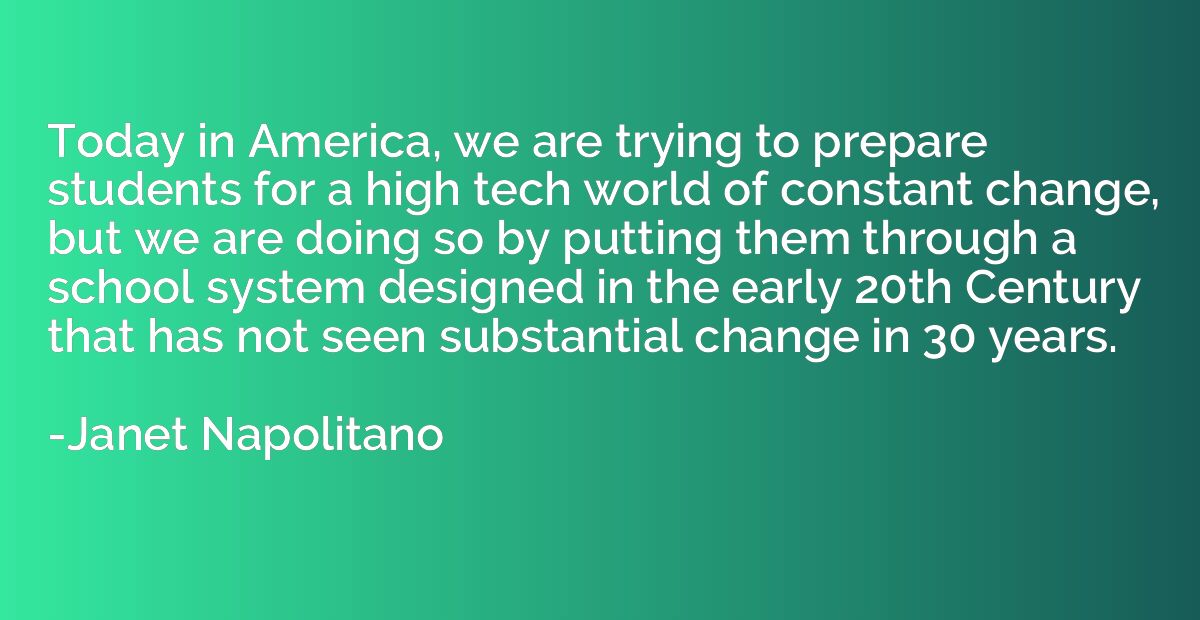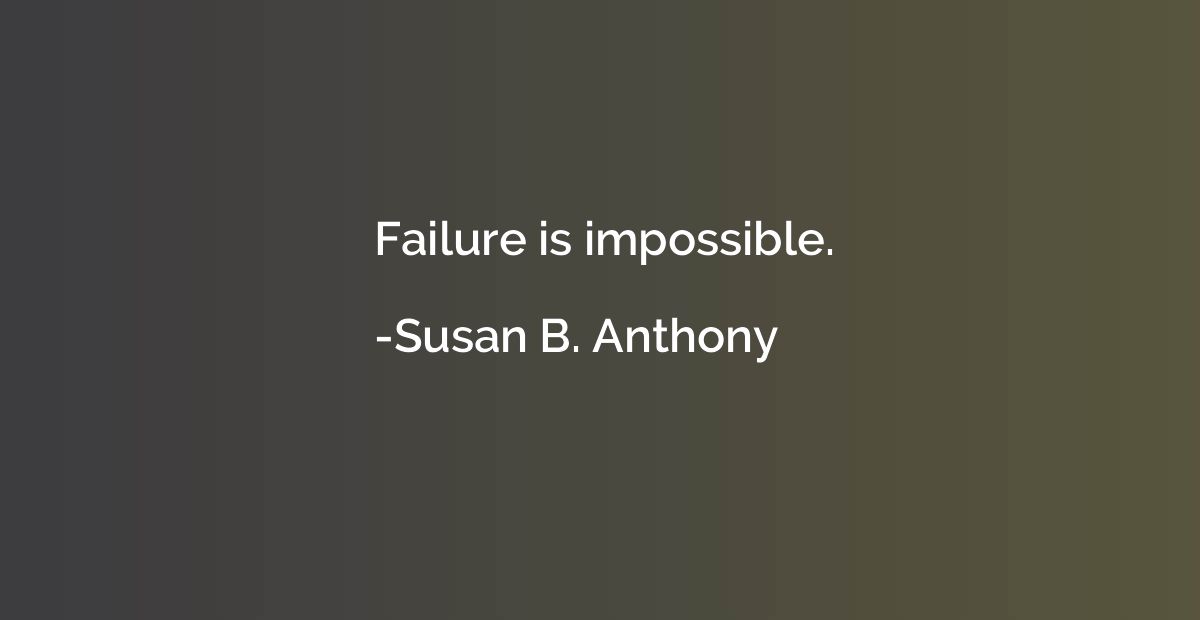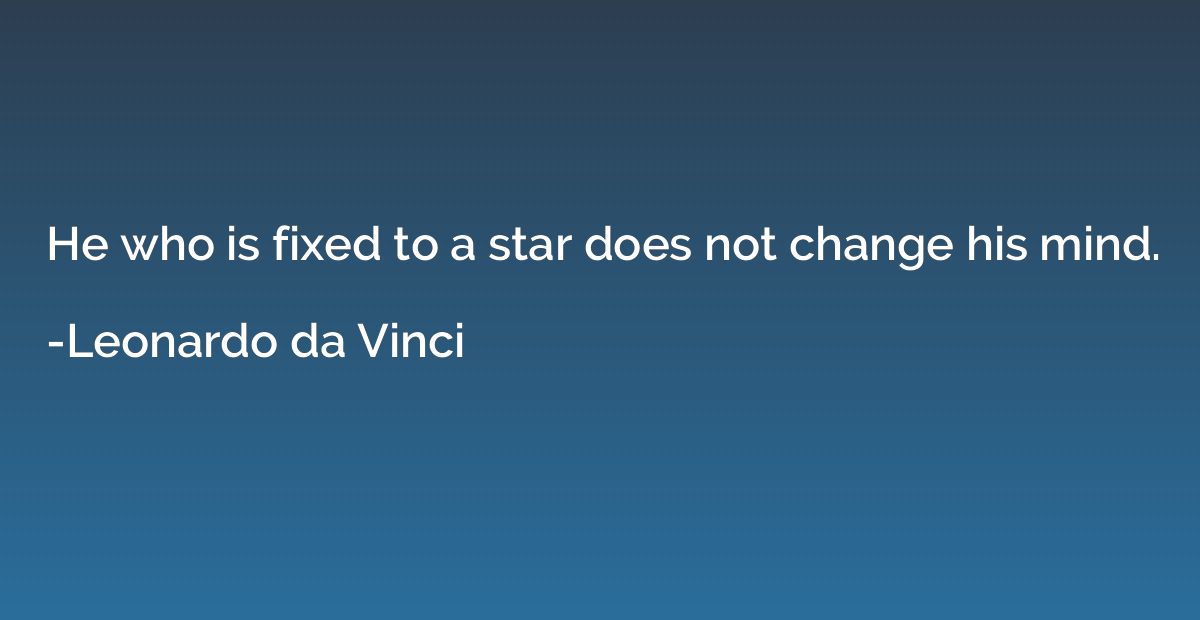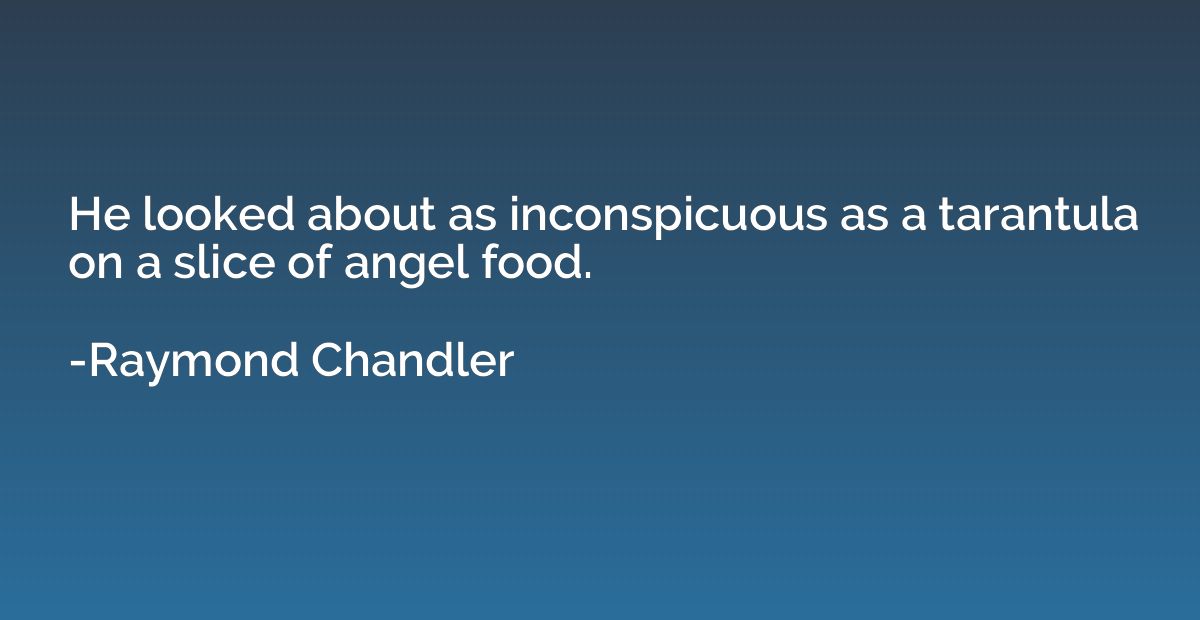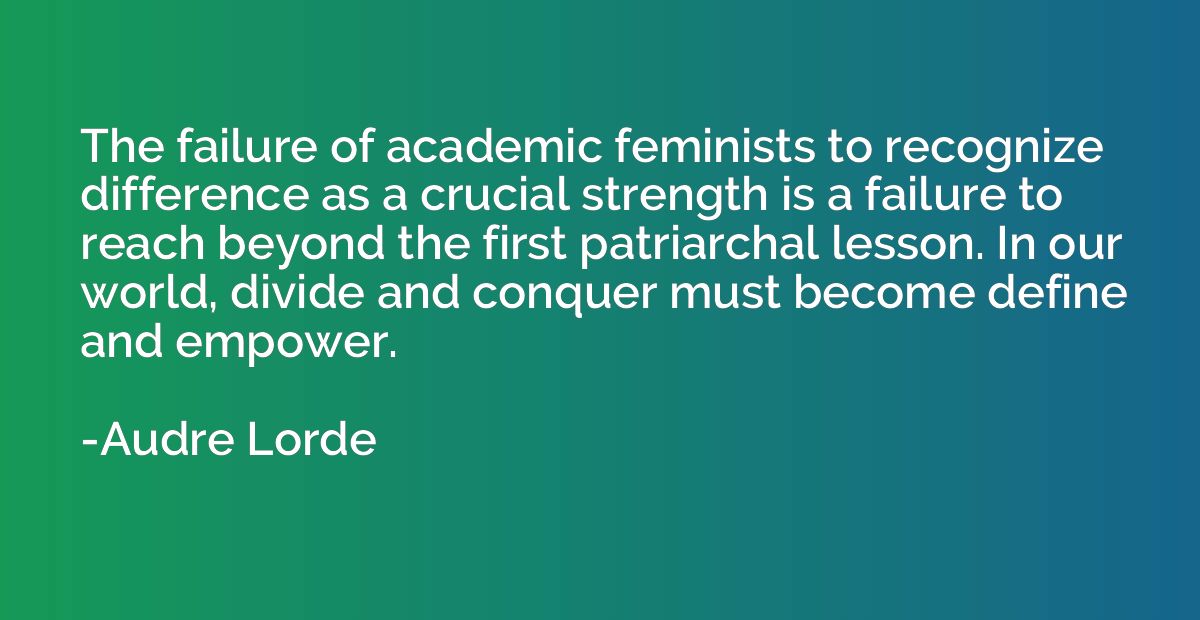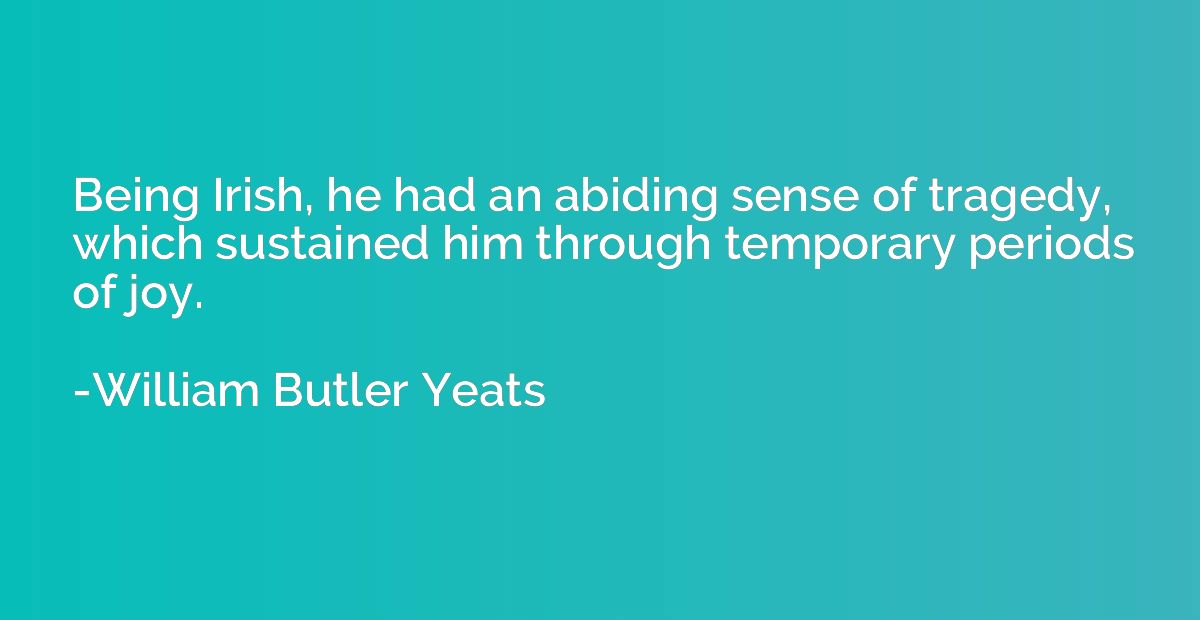Quote by Richard P. Feynman
There are thousands of years in the past, and there is an unknown amount of time in the future. There are all kinds of opportunities, and there are all kinds of dangers.
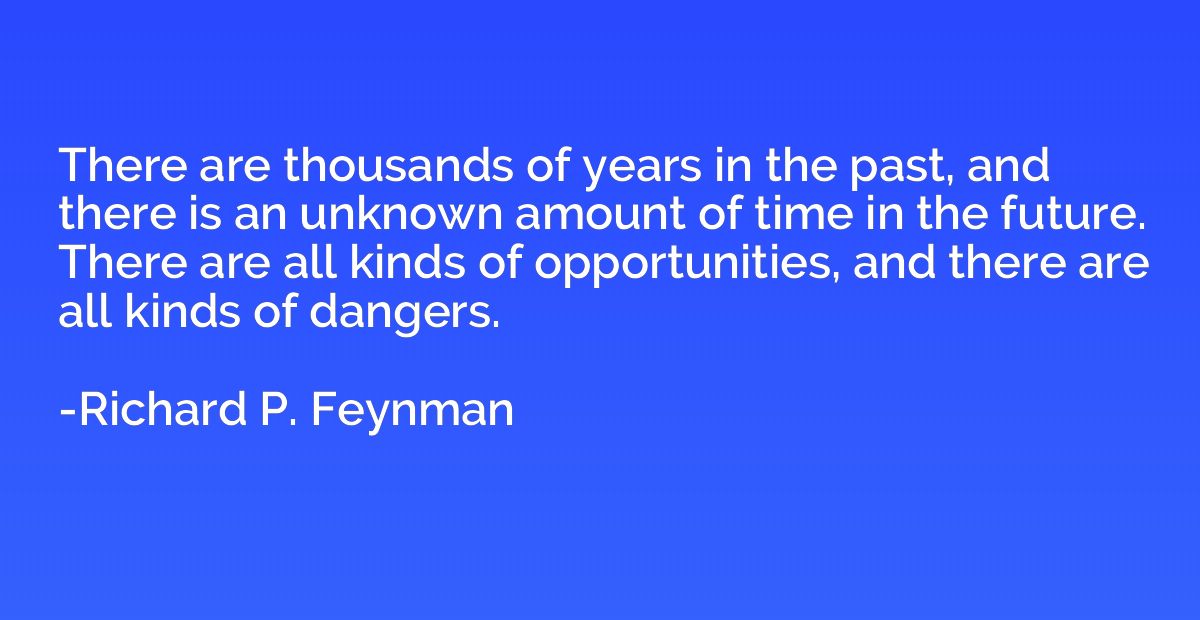
Summary
This quote suggests that the span of time is vast and unpredictable. The reference to thousands of years in the past implies a rich history filled with experiences and lessons learned. It also implies that the future holds endless possibilities, both positive opportunities and potential risks. The quote reminds us to recognize and navigate the various opportunities that arise while staying vigilant of the potential dangers that may come our way. It serves as a reminder to be mindful of circumstance and to approach life with awareness and cautious optimism.





